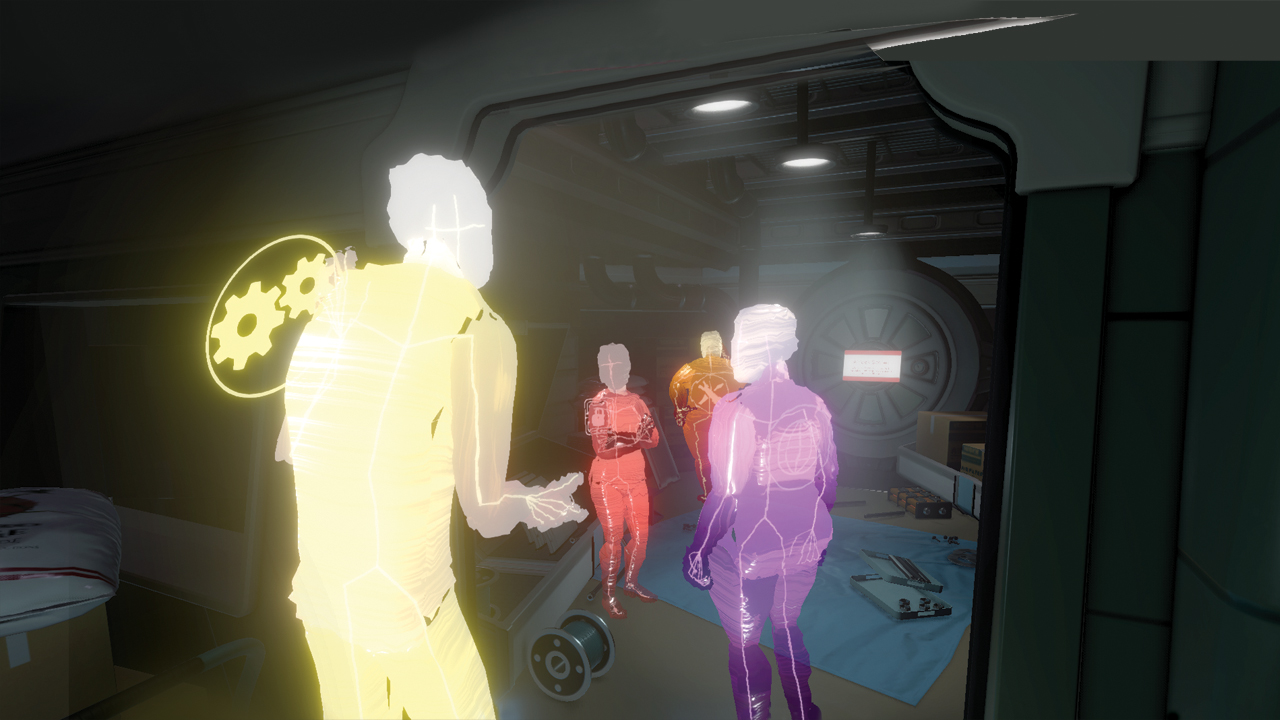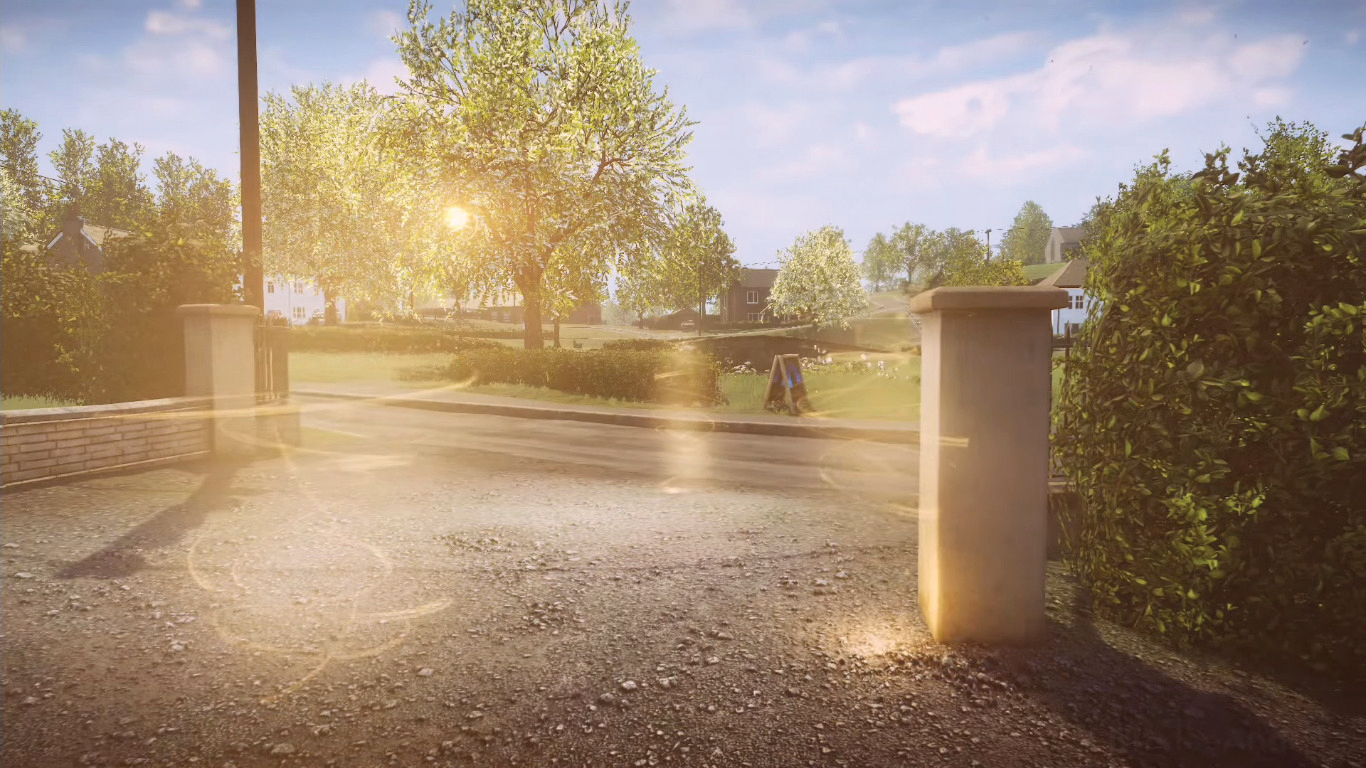Why I love listening to conversations in exploration games
Getting to know characters through chatter.

There’s something eerie about how walking simulators drop you into an otherwise entirely empty landscape, particularly when they aren’t built to look empty. Often it seems as if everyone has simply stepped away and just never returned, making it all the more impactful when you do come across a sign of life—usually in the form of a snippet of conversation. I love it.
I have a lot of love for stories that you uncover by being a bystander to conversations that don’t concern you at all. Getting a glimpse of how characters talk to each other—or even themselves—makes them feel that much more human.
Games focused on exploration and discovery are the best for this, because it’s rare that the conversations you hear or memories you witness ever involve your character. You’re looking in on past events and, unless you listen closely or find corresponding pieces later on that put what you’ve heard or read in context, these instances stand alone as snapshots of someone’s life.
Take Everybody’s Gone to the Rapture. At one point you happen across a conversation between Father Jeremy and Wendy. They are discussing how to raise interest in a special sermon concerning the frightening events in their village, when Wendy takes a verbal swipe at Jeremy for something he’d done in the past. He knows what she’s referring to, but you don’t. At the same time there’s much to learn about both characters from their conversational dynamic. Wendy, for instance, seems to be a person for whom it is hard to forgive and forget. Jeremy is able put his duty over his personal feelings.
Stumbling in on conversations makes me aware of how much I don’t know about characters and their situation, and the naturalistic writing means that no one gives the sort of blatant exposition that would fill me in. There are no outsiders other than myself in need of an explanation, and when exploring a specific point in time—for example the imminent catastrophe in Tacoma—there’s not much room for verbal reminiscence. Even when the characters are explicitly talking to me, it’s always under the assumption that I may have to fill certain gaps in my knowledge myself. The diary entries in Gone Home and What Remains of Edith Finch may be directed at my character, but people don’t normally write down recollections with me as a player in mind.
Eavesdropping

It’s just damn good writing—giving you enough hints to figure out the broad events, but never spending too much time dryly belabouring every small detail and scrap of context. Because, frankly, it doesn’t matter whether you understand everything or not. It’s not like you need the information specifically in order to complete a quest. The story you’re witnessing has taken place, and you’re here to listen to it. I think this is also why some people struggle to find entertainment in exploration games. Listening is a passive skill, and everything we traditionally associate with games is active and reactive. Here the interactive quest lies in putting a story together.
I find story snippets I uncover through in-game conversations more engaging mostly because there are so many gaps in the story for my imagination to fill. (Unsurprisingly, slice of life films, which work by a similar principle, are also my favourite.) In Firewatch, you can clearly feel Henry and Delilah grow on each other over a series of conversations. They talk about more personal things and adopt a more playful tone with each other over time, and I spent a long time thinking about what else they might talk about, how each of them might have reacted to certain topics and what they may have bonded over given their personalities. How you can build an understanding of characters from a relatively small amount of material is another thing that makes the writing in these games so great.
Keep up to date with the most important stories and the best deals, as picked by the PC Gamer team.
Conversation snippets are another way in which exploration games address the behaviour a lot of other game genres also encourage, from the need to put the puzzle together, to the hoarding tendencies you can develop over wanting to see and hear everything in an RPG or open world game.
It’s decidedly less voyeuristic and more interesting to listen in on people in a game than to imagine the lives of the strangers you saw at the park or to read someone’s text messages over their shoulder.

